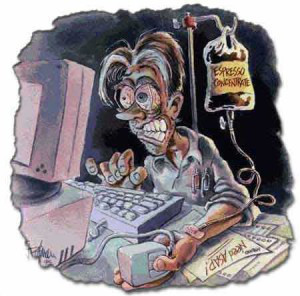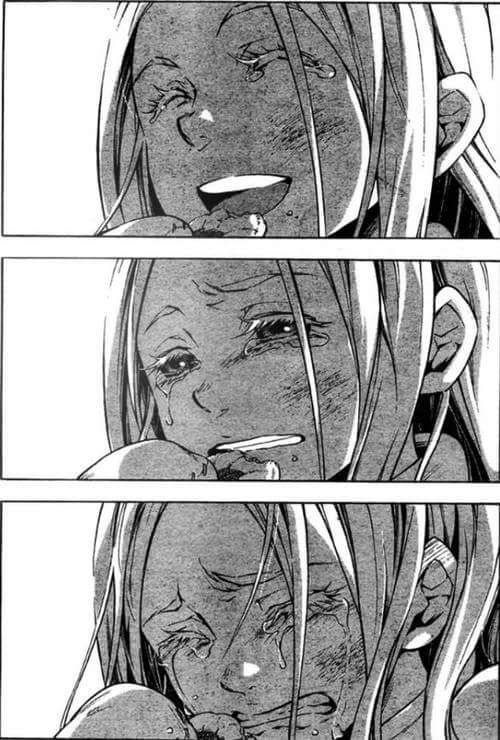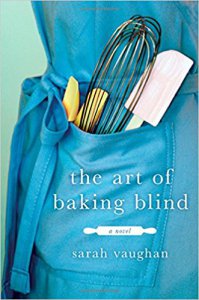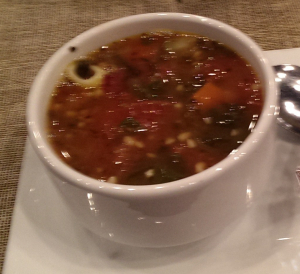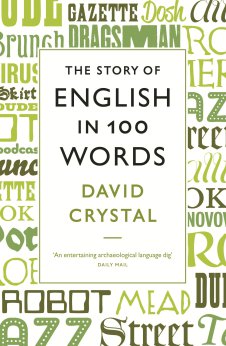I finished Karachi You’re Killing Me! Partly while waiting for my car to be fixed (if you listened to the Phillauri podcast, you know that my side mirror was falling off), and partly while sitting in the now-fixed car for five minutes because I got to the knitting group early and had to kill time. Well, sitting there for 15 minutes. I got sucked in and ended up being ten minutes late to knitting.
I don’t want to say this is a great book. It’s not. It was as easy a read as Guide, but a lot less deep. And it wasn’t as well-written as Karan’s autobiography. But it is a fun book, and it is a really interesting way of making “the medicine go down”.
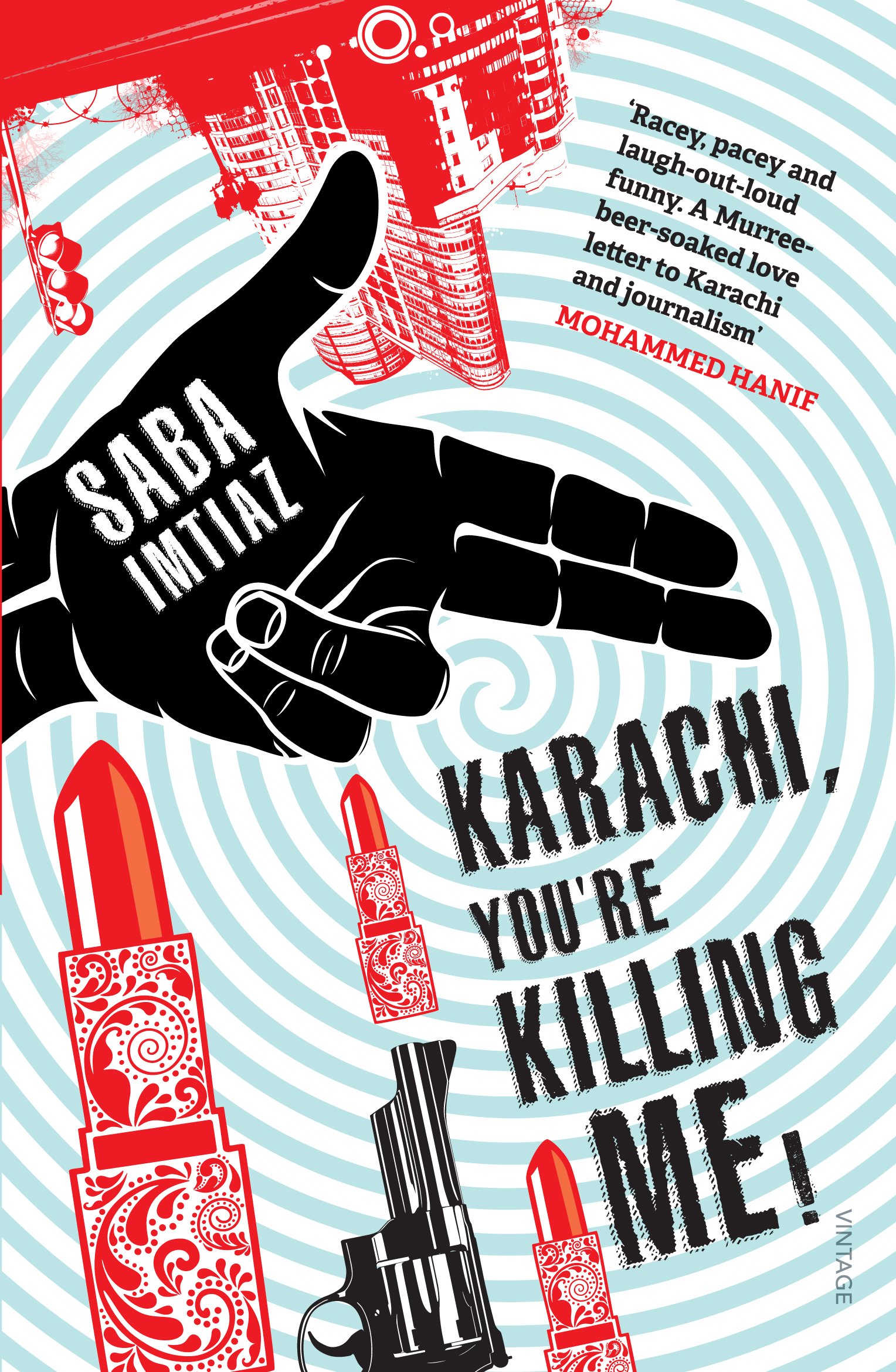
(Also, great cover design!)
There are two kinds of “medicines” this book is trying to give you. First, and most importantly, the author was a journalist working in Karachi for years, and a Karachiite, and she wanted to share her stories and experiences of living and working in Karachi in the new millennium. If you want to see how Karachi society and politics and religion and everything else interacts, this book is a great way to do it. Not with long speeches and statements, but casual comments about visiting the Bhutto graves or dealing with her bootlegger or never publicly using her cell phone for fear it would be stolen. The writing and the characters really come alive in those parts, talking about the foibles and flaws of her home city and home country.
And, unfortunately, all of that is probably going to get lost in the Hindi film version. And not just because it is set in Bombay. They could make it local, put in political statements about high society embracing the BJP religious types, while their parents were all about the Congress party. Or wealthy South Bombay types who can’t be bothered to pay their employee’s salaries. But I suspect instead that will all be written out and turned into “ha-ha, in jokes for the multiplex audience!” content instead of bitter humor about the downfall of a society where those in power fritter their lives away and those without risk their lives to try to make a change.
The other part of the book that is the “medicine” bit is the complexity of our female heroine. This could be kept! And definitely should be kept. But I suspect it will be lost. Just like it was in the book/film that clearly inspired it, Bridget Jones’ Diary.
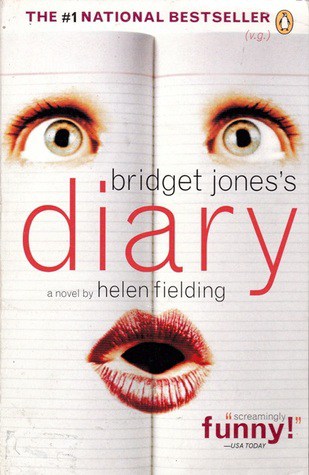
(Another great cover design!)
I very much enjoy both the book and film of Bridget Jones. But I am also aware that they are two very different animals, and the film version missed the most important point of the book version. In the film, Bridget is loved “just as she is” in all her flawed and awkward and unappealing glory. But in the book, the point is that Bridget isn’t flawed or awkward or unappealing, but she thinks she is. The culmination of the book isn’t when her romance pans out, it’s when she rallies her friends to track down one of their group who hasn’t been answering calls or coming into work for days. That’s when she realizes that she does have value, and importance, and abilities, and all of her self-doubts briefly melt away.
Karachi You’re Killing Me is another first person book about a modern young woman who is constantly struggling with doubts and fears and questioning every decision. She obsesses over all the things that went wrong over the course of the day. All the ways she isn’t as good as her friends or her co-workers. All the parts of her life she wishes she could change. It’s amusing to read, but throughout the book there are also “clues” scattered to show that our heroine is an unreliable narrator. She claims to be stuck in a dead end job where no one respects her, but we see that her boss, the owner of the whole newspaper, is constantly calling on her. She says her father doesn’t even notice she is there, cares more about the cat, but we see that he greets her when she comes in at night and leaves in the morning and tries to get her to eat better and be healthier. She says she is awkward and scared and all those terrible things we always think about ourselves. But then she will casually mention the time she was covering a gang war and got caught in a firefight, or her connections with everyone from religious extremists to criminals to high profile politicians. This is an amazing woman, she just can’t see it about herself, and it is left to the reader to put together the evidence and figure it out.
And, based on the trailer so far released, I am afraid that the scriptwriter may not have been a smart enough reader to figure this out from the clues. It looks like instead of a story about a woman realizing she had everything she needed all along, it is going to be a story about a woman being advised by wise men until she finds what she needs. Her editor is turned from her nemesis, a coward and a weakling who undervalues her, into some wise soothsayer teaching her about her flaws. In fact, into the very thing that character in the book liked to imagine himself as and which even our self-doubting heroine was too smart to fall for! That whole “I’m wiser just because I am a man and you should therefore listen to my big pronouncements” thing. And suddenly her career isn’t something that has been built up over years already in a way she doesn’t appreciate, but instead is something she never cared about in the right way until she “grows up” and stops drinking and partying. Blech! Totally not the same as our heroine who would drink all night, then go interview a religious extremist with a hangover and charm him into giving her his phone number.
The one thing that they will probably keep mostly the same is the romance. Which is fine, it’s an okay romance, but in the book you can kind of tell this is the part that the writer was least interested in. She knew that she needed to put in a romance to kind of tie everything together, and because it’s what the reader wants. And she did the work, created a convincing hero and some nice scenes and an emotional development that hangs together. But it doesn’t pop like when she is cynically talking about conversations among the elites at the literary festival, or what it’s like surviving a bomb blast in the street. That is why this book became a hit, that is what makes it different from all the other chick lit out there. And instead of being brave and trying to capture that, a strong heroine in a society that is falling apart who doesn’t even see her own strength, a bet this film just focuses on the romance of it all. And even there, there is a decent chance they will miss the best bits.
Boy, I am so pessimistic about this already! Sure, I’ve been burned before with almost every literary adaptation ever (except Guide!), but maybe this will be the one that makes it work! But, just in case you want to join me in pessimism and sit in the theater and say “see, they totally missed the point of this interaction”, or to be an optimist and say “oh boy, that sounds great and I am sure the film will capture it perfectly, can’t wait!”, or if you never plan to see the movie but are kind of curious about what kind of film inspired it, then read on! I am about to give you the ENTIRE PLOT!!!!
SPOILERS SPOILERS SPOILERS SPOILERS SPOILERS SPOILERS SPOILERS SPOILERS SPOILERS
Our heroine Ayesha (but called Noor in the film version for some reason) lives in a small apartment in Karachi with her father and their cat, who her father adores. She is a reporter at the city newspaper, not the fancy newspaper, but the struggling tabloid type paper, which is run by a wealthy dilettante who is constantly doing things like putting marble floors in the lobby while being months behind in paying wages to the staff. Her best friend is Zara, another female reporter, who works for a TV station and always seems to know more interesting people and go to better parties and have better clothes and a fancier life. Her other best friend is Saad, they grew up together, he lives in Dubai now and has a fancy job and a string of fancy model girlfriends, but he still calls and texts and emails her constantly.
After this set-up, there isn’t so much a “plot” as just a string of incidents. While Ayesha thinks of herself as having gotten nowhere in her job and having no respect, her boss is constantly pulling her in to take special assignments. Which means she ends up going all over the city and seeing a whole variety of things, and giving us (the readers) her unique perspective on them. She is frustrated by how the people she knows from childhood, the city elites, seem unaware of the poverty and violence that surrounds them. She is disgusted with the abuses of power she sees all around. And describes in a matter of fact manner her occasional fights against it, outbursts of anger, or attempts to make people see the things she sees, reporting from the streets every day. But she never sees that as heroic or remarkable, it’s just her life. Instead, she obsesses over things like her faded black pantsuit that is the only thing she has to wear to a party Zara invited her to, or why she hasn’t had a serious boyfriend in years.
And through all of this, there is Saad. When she has a bad day, she comes home to a message from him that just says “love you” with a bunch of childhood pictures attached. Or she calls him to vent when she has a fight with her boss. And sometimes when she is feeling low, she agonizes over the latest model she saw him with and how he is always asking for Zara’s phone number and how terrible it would be if he started dating Zara.
The “conflict”, which I am guessing will carry through to the film as well, comes when she is at a party and meets a handsome American reporter who is new in town. They flirt, she obsesses over it later but we can see from our outsider perspective that she came off as cool and sophisticated, and very very impressive with her knowledge of the Karachi news beat. And, of course, he calls her to follow up and invites her to dinner at a fancy restaurant, she decides to wear a sari because she doesn’t have anything else to wear that is nice enough, they have sex. Again, from our outsider perspective, we can see that while she may think of herself as unfashionable and awkward, what he would have seen was a gorgeous exotic woman in a sari casually talking about tinnitus after being caught in a gunfight.
And then the very stressful part! At the same time this relationship looks like it might be taking off, she gets a call from a contact she has been nurturing since a casual meeting in a courtroom ages ago, years spent checking in with him and keeping track of his story and making sure he trusts her. Her contact’s father has just been freed from Guantanamo after years in captivity, and now he wants her to have the only interview. This could finally be her chance to get out of Karachi! To have a story that will get her noticed and an overseas job offer instead of being trapped in what she feels is a dead end job in a dying city.
That’s not the stressful part, the stressful part is that she TELLS THE NEW BOYFRIEND!!!! ABOUT HER AMAZING EXCLUSIVE ONCE IN A LIFETIME LEAD!!!! Now, a careful reader might have already noticed signs that he isn’t as good as he seems. The biggest being that we, the readers, are aware of what an amazing catch Ayesha is, even if she doesn’t seem to be aware of it herself. And he isn’t treating her nearly well enough, sleeping with her on the first date and then not calling, it doesn’t seem right. But also there is a comment from her friend who is working with him about how he is kind of a pill to work for. And, most importantly, there is the fact that Saad doesn’t like him (I’ll deal with Saad in full later). And so of course as soon as she tells him about her story, we are just waiting for it all to go wrong.
(Looks like the movie will give this sequence a catchy love song, in an attempt to distract us from the stress)
And it takes SO LONG to happen! She does the interview, she presents it to her boss, he drags his feet. Then she gets word that the state intelligence people might be looking into it and she needs to lay low for now. She freaks out, and Saad tells her to go out of town and arranges the plane tickets so she can come stay with him immediately. And only after all of that, and after Saad has helped her find a contact at BBC who might take the story and she has sent it in, only after aaaalllllll this time does the other shoe finally drop and her exclusive story appears on CNN with her new “boyfriend”s byline.
This whole sequence is really well done, I think because it picks up more on the author’s professional experience than on her romantic experience. It’s not the romantic betrayal that burns, it’s the professional one. Both that she has been tricked by a colleague and lost her career, and that she was so naive and stupid it makes her doubt all her instincts.
The part before the betrayal, the actual interview and then hearing from the intelligence forces, that is done well as well. Our heroine freaks out eventually about being chased by the security forces, but her first reaction is to just get the story out above all. Again, she is much cooler than she gives herself credit for, focusing on her fearful breakdown in her room, instead of on her fearless demand for the story to be published and who cares about consequences in the editor’s office. And the same with the interview, she talks about the humor of trying to get a taxi driver to take her and finding the right place. But she doesn’t think of the skill and patience it took for her to gain and keep the trust of this family, and to know just the right questions to ask to get the best responses.
And when it all falls apart, I believe in her devastation. While everyone else in her life is telling her to just get over it, she has lost her professional pride, the one thing that through it all she had always held on to. And so all she can do is just sit and wallow in it.
What I also believe in is her professional rebirth following this. She accepts a terrible uninteresting assignment, covering elections in the middle of nowhere, just to get out of town. And she agrees to go drinking with another reporter she has no respect for just because she is so lonely there. And only then does that reporter introduce Ayesha to her real mentor, Andrea. Not some editor from overseas, or some sexy hotshot male CNN reporter, but another woman stuck in Pakistan who likes drinking with her all night and complaining about all the indignities of life for a female reporter in this society. And their mentorship grows not through some magical once in a lifetime story, but through twitter jokes and texts and finally a casual comment about “you know, you’ve got more connections in Karachi than anyone I’ve ever heard of, you should really be doing more interviews and sending them overseas.”
This is why she had to be brought low! To give up on her dreams of the amazing overseas job and to see what she had already right in front of her that was so much better. To work in Karachi, where she already knows everything and everyone, but to send her stories to people who will appreciate them and where they will be read, instead of staying trapped with these people who don’t appreciate her. And to get that chance through just being her awesome funny self and bonding with another woman, not by trying to pretend to be some Western style reporter she isn’t and impress some Western man. And thus, professional rebirth!
She quits her job and starts obsessively writing story after story, not big hard to find hot stories, but the ones she had all along and never saw, interviews with all those contacts that she’d built up over the years with the context only she could provide. And they are printed and re-posted and talked about without any special effort, because she has finally found the right place for her talent. And in the same way, she finds her revenge on the man who did her wrong. He is still in town, in “her” town, and she could have easily had a big confrontation at a party or spread terrible stories about him to his next girlfriend (who of course she knows, because she knows everyone), but instead she gets her revenge just by being a good professional and letting nature take its course. She notices that footage in a story he filed about an “exclusive” interview with a torture victim looks familiar. And then she confirms that it was already used by a different reporter. And simply alerts her new friend and mentor to this and then doesn’t do anything else. There is no need for her to do anything else, she has done it already, by building up so many connections over the years that every reporter in Pakistan will believe her word, by knowing enough to recognize the fake footage immediately, and by being such an obviously talented and valuable asset that her mentor decided to take her on in the first place.
That’s the professional resolution, and her personal one mostly, exorcising that last demon. But the most important conflict was always between Ayesha and Karachi itself. Even now, with her career booming thanks to her local contacts, and her relationship with her father better than ever (at her lowest point, he told her that he loved her and wants to take care of her, but she won’t let him in, resolving her vague sense that she is disappointing him), but she still has to resolve whether she can live in Karachi.
And that’s the scene that I just don’t see happening in the movie. Our heroine is riding in a taxi when a bomb goes off in front of them. And her reaction is “oh look, a bomb again.” She goes through it in a very matter of fact way and you can tell this is written by someone who has actually experienced this. Traffic stops, and you have to abandon your vehicle and start walking. You are in shock, the emotions haven’t hit you yet, so you should just try to get home and off the street before they do. Be ready to run into crowds of young man looking for revenge for the blast, and don’t bother going to a hospital, they will all be overrun. It’s not just our heroine going through this though. Her boss, the rich man who constantly used and abused her and never paid her salary or seemed to respect her, he is randomly caught in the same post-blast traffic jam. And he does not take it calmly and matter of fact. She is almost surprised by how upset he is, because she has been caught in this situation so often. She helps him away, even convinces a group of gun toting young men out for vengeance to help them. And then while he is praising her to all the reporters gathered around, she sneaks out and goes home to get drunk.
It’s a very very well-written sequence. It’s the real finale of the book. The goal is to show us all of Karachi, the ugly and the beautiful. And this is both. Ugly and scary and angry, yes. But also showing how you can truly know what you are capable, how you can survive and accommodate to any environment, how sometimes the greatest inner strength only comes out and shows itself to you when you are driven to extremes. And that is the value of living and staying in her hometown, of just surviving and accepting that this is what needs to be done to survive.
(And in the Hindi movie version, we get a Badshah item song instead)
Oh, and also there is the romance. Like I said, it is fine, it does the job. The author clearly sat down and outlined the whole thing before she started writing and then figured out how to drop little hints through out. Our heroine sees Saad as her handsomer wealthier smarter friend. She is happiest when she is with him and miserable when he is dating someone. She even loves his mother. One of the first things we learn about Saad is that every time Ayesha sees him he has a new model girlfriend, and they always break up right after she meets the new girl. Which a smart reader will right away see as “aha! Saad is clearly in love with Ayesha and every time they meet it comes back up to the surface and he ends up breaking up with whatever substitute girl he picked up.”
In the same way, Saad doesn’t like the evil reporter boyfriend right from the start, and the smart reader will go “Aha! Saad is jealous! And also aware that Ayesha is way too good for this obviously lame reporter guy.” And when she is possibly in trouble because of her big story, he immediately arranges for his bodyguards and a younger cousin to pick her up and fly her out to visit him, “aha! He is protective and concerned!”. But, even better than the way he hurries to rescue her, is how on the way to the airport, the teenage cousin asks why she never dated Saad, and Ayesha gets the feeling that not just the cousin but even the bodyguard is listening closely like this is a big important question to people who know and care about Saad, and they are super curious about the answer.
That’s the total wish fulfillment part of it! It’s not just that Saad has been in love with her without realizing it just like she has been in love with him, he DOES realize it! And so does everyone close to him. He has been in love with her since they were teenagers and has been miserable this whole time because he thought she knew and just didn’t feel the same way. All those “love you” emails were sincere, the comments she thought were jokes about how he only comes back to Karachi for her, all real!
It’s a nice hook, but like I said, you can tell the author just doesn’t care about it as much as the rest of the book. So she kind of rushes the ending. We have the first half with constant mentions of Saad as a big part of her life, and occasionally running into him at parties while he is in Karachi, and fighting over email because he doesn’t approve of her boyfriend. Then we have the getaway to Dubai where everything is wonderful, they stay up all night talking, she sees that a photo of the two of them is the first thing in the entrance way of his house. And then the ending had that whole bit with her losing the story and Saad just isn’t present for that. And he isn’t present for her professional rebirth either. Or even that bomb blast that ends up sort of resolving her issues with the city.
No, he is just kind of tacked on way way way at the end. When he shows up on her doorstep to announce he is moving back to Karachi because his “mother needs him”. Ayesha is thrown and confused and worried because something else is clearly going on. She goes to meet his mother, who says that Saad only came home for Ayesha, he said he couldn’t stay in Dubai any longer where he couldn’t see her every day. But our heroine still doesn’t pick up on it, thinks that he has some kind of crazy homesickness or sense of responsibility. And for his own good, tries to convince him to leave Karachi and go back to “civilization”. Which he misunderstands and goes over to her house one night to have it out and says he can’t keep sitting in Dubai just thinking about her, he has been “thinking about her since I was 14 years old”. And Ayesha STILL doesn’t get it!
Even when she accidentally sees him with a new girlfriend (possibly) just as he sees her with the evil ex who she randomly bumped into, she is so focused on her jealousy of the new girlfriend (possibly) that she doesn’t notice his clear jealousy of evil ex.
It’s only when she learns he is leaving town without resolving their fight and there is a big rush to the airport that the truth comes out and she discovers that she can’t imagine life without him and never wants him to go, and he admits that he is in love with her in a way she can’t miss. Happy ending! Except not really because all the important parts of the story ended happily many pages back.
So, to sum up, Karachi You’re Killing Me the book is a feminist text about how women doubt themselves and can’t see what they have. And more importantly, a socio-political text about modern Karachi and what it is like to live there. And, oh yes, there is also a romance.
My prediction for Noor, the movie version, is that the feminist text point will be lost (our heroine doesn’t just see herself as a mess, she actually is a mess). And the socio-political part will be completely thrown out (you could make the same points about Bombay, but would anyone dare?). And the romance will be there, but I am a little nervous that they missed the point there too.
I love Kanan Gill, don’t get me wrong! So far as I am concerned, smart and funny is all I need in a man. Well, and also tall. But mostly smart and funny (thus my passionate love for Shahrukh). But the character in the book is supposed to be smart and funny with her, but cool and handsome and sophisticated with everyone else. Picture more Ali Zafar, or Abhishek Bachchan or Kunal Kapoor. That’s why she never thinks of him “like that”, not because she wants something more or doesn’t want to settle, but because she thinks he is too good for her, so handsome and successful that he would want some young socialite, not his beat up old friend who spends her days running around the streets talking to men with guns. But Kanan Gill, that just screams “funny best friend who she is too shallow to appreciate” casting.
(although, again, I have a huge crush on him because smart and funny is the best. But it’s not what this character is written as. Or all this character is written as)
Oh well, at least the idea of a female protagonist who worries about her job and has an active love life and gets drunk looks to still be there! And that alone is kind of wonderful.
Advertisements Share this:
